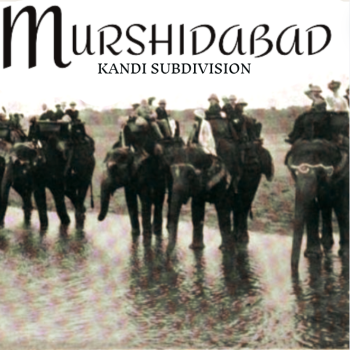In 2004, a Progressive Muslim movement swept into mainstream North American press and claimed to stand up for the “moderate majority” of Muslims. Yet, less than three years later the same “moderate majority” has almost completely sidelined the Progressive Muslim community. Even those who previously identified themselves as Progressive Muslims do not now wish to be so affiliated. The flagship organization of the movement Progressive Muslim Union of North America has lost almost 90% of its board members. MuslimWakeUp!, the primary organ of the movement, is neither frequented nor active, often going weeks without publishing new content. It has gotten so bad that Mohja Kahf, one of the initiators of the controversial “Sex and the Ummah” columns on MWU!, will not even allow herself to be known as a Progressive Muslim, and states that she did not advocate in her personal life the activities she described in writing. Among American Muslims, to say that Progressive Islam is dead isn’t shocking; it is anachronistic.
The broad outline of what Progressive Islam stood for intellectually was perhaps best stated by Dr. Omid Safi, who likened it to a sort of “Islamic Humanism”. The problem that Progressive Muslims were not able to address satisfactorily when questioned by the friendly members of the “moderate majority” was why any Muslim had to redescribe her “Islam” as “Islamic Humanism.” Most Muslims believe that Islam, on its own, concerns itself with social justice, equality, rule of law and fairness. To say that this correct version of Islam ought to be termed Islamic Humanism (or at least implicitly acknowledged as such), smacked most Muslims as a lesser form of self-hate. As such, when “Islamic Humanism” came to be recognized as redundant, so did the “Progressive Muslim” agenda.
 The Progressive Muslim Movement Lives – The Progressive Muslim Union is on life support, Muslim Wakeup! is taking a bit of a nap, and the so-called “moderate majority” groans whenever the terms “progressive” and “Muslim” are uttered on the same day. It would be hard to deny that the progressive Muslim movement is desperately stalled at the moment, yet Ali Eteraz’s gloomy declaration of The Death of “Progressive Islam” still strikes me as recklessly premature. (Read more…) |
The more hostile members of the “moderate majority” began to describe Progressive Muslims as “pro-regressves” – accusing them of taking Islamic discourse back to a state of pre-Islamic jahiliyya (ignorance). Such disfavor stemmed from the fact that Progressive Muslims were declared to be sexually loose, excessively critical of Muslim scholars from the past, and unconcerned with Islamic ritual. My personal belief is that there was, in fact, a sustained campaign of demonization by many conservative Muslims to paint Progressive Muslims as illicit, lewd, and insulting of Islam, and that campaign was successful because the conservative discourse is sadly receptive to such rhetoric. In an article written to prevent female Quranic expert Amina Wadud from leading a group in prayer, GF Haddad, a prominent conservative scholar, likened Progressive Muslims to Dajjal, the Muslim anti-Christ. Conservatives could get away with such blatant demonization. Progressives, on the other hand, were accused of being subversive if they tried to mock such rulings.
However, that smear campaign was aided by the fact that Progressive Muslims allowed themselves to be identified with Neo-conservatives in DC, and because they seemed more interested in publicity stunts than hands-on work with communities. The North American “moderate majority” did not take too well to Ahmed Nassef, a board member of PMUNA, going on Fox News, which is considered presumptively anti-Muslim. Nor did it appreciate Irshad Manji attending conferences organized by right-wing think tanks (despite the fact that Irshad Manji never held herself out as a Progressive). Nor did it appreciate Asra Nomani posting her 95 theses at a West Virginia mosque as if she was some kind of Muslim Martin Luther. Finally, there was the issue of Tarek Fatah, one of the prominent organizers of the Progressive movement. He alienated so many Progressive Muslims that some of them turned against the P-word themselves, and then exposed other negative facts.
My own stint as a Progressive Muslim lasted a few short months, and I terminated my relationship on my own initiative due to what I thought was an insurmountable problem with the Progressive Muslim movement. Islam, like Judaism, is a juridical religion. The primary sources of Islam – the Quran and Sunnah – are pulled together to create religious law (Shariah) which provides guidance to Muslims. I was faced with the stark fact that there was no such thing as a “Progressive” Muslim jurisprudence, neither in theory nor practice; nor would there ever be one. There certainly were vaunted scholars whose opinions were consistent with the aims sought by the Progressive Muslims, but those scholars did not want their opinions appropriated by the Progressives, partly because they had bought into the conservative smear, and partly as a matter of pride because they considered their harmony with Progressives a consequence of their affirmation of tradition, not a sign of their break from it. At the end of the day, all practicing Muslims turn to some kind of juridical authority. The fact that the Progressives did not have one to offer was a great cause of concern for me, and I packed my bags.
Today, the “moderate majority” of North American Muslims flows freely through a number of popular channels, such as the website Eteraz.Org: States of Islam, which I launched, Islamica Magazine, and altmuslim.com, as well as the traditional organizations like MPAC and CAIR. Even former progressives have reconstituted themselves so that they no longer claim to speak for a Progressive version of Islam but for that other progressivism – the political one.
The P-word comes up from time to time, but almost no one wears it anymore.
Ali Eteraz is a free-lance writer and essayist. He is also the founder of eteraz.org: States of Islam.















